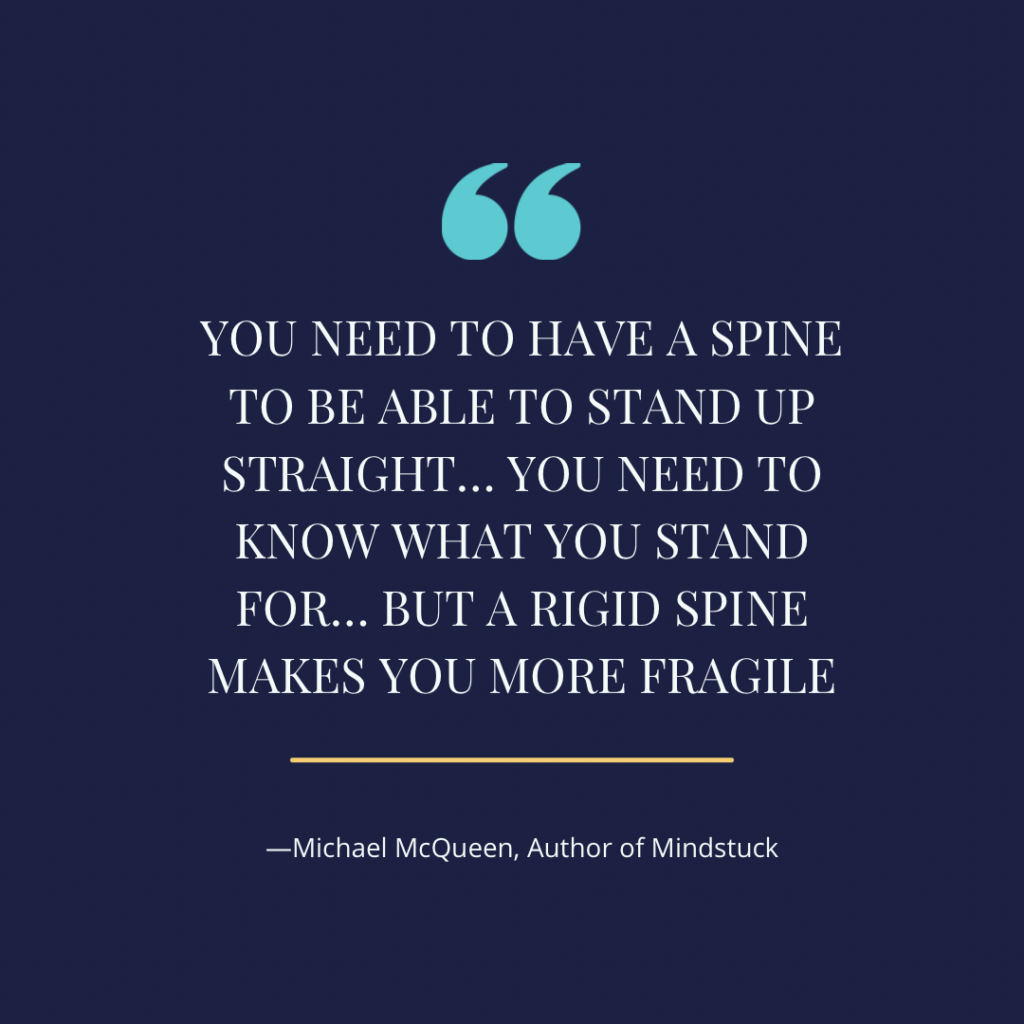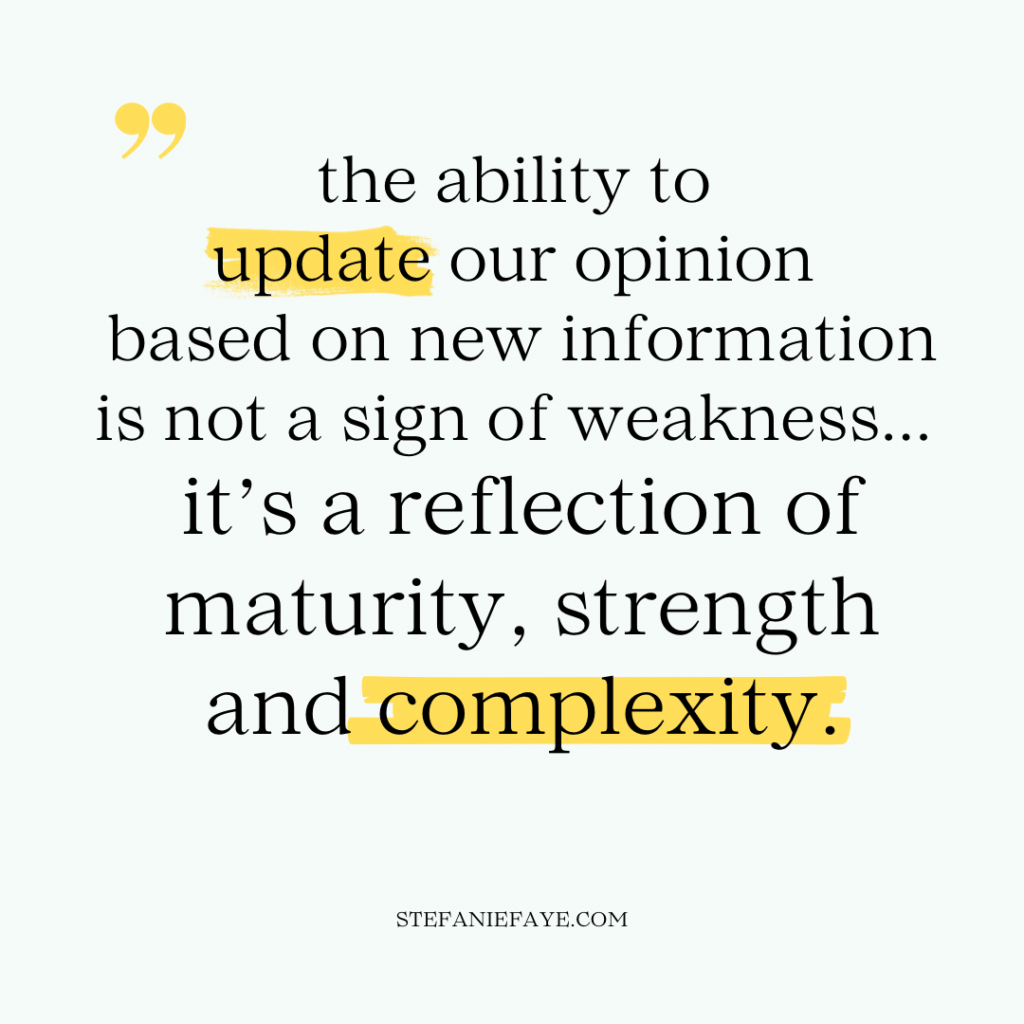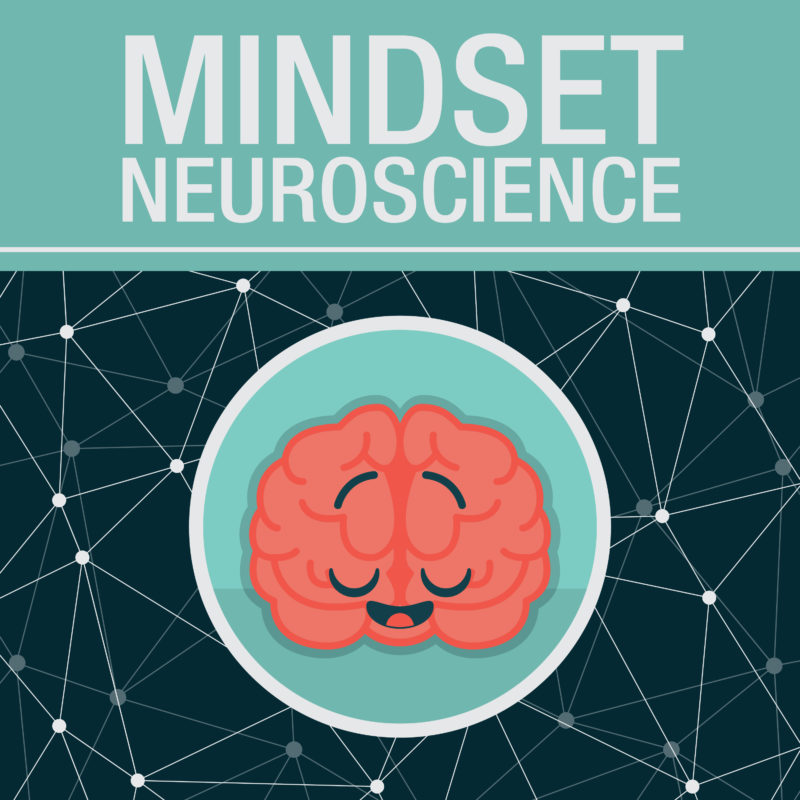“The measure of intelligence is the ability to change.”
― Albert Einstein
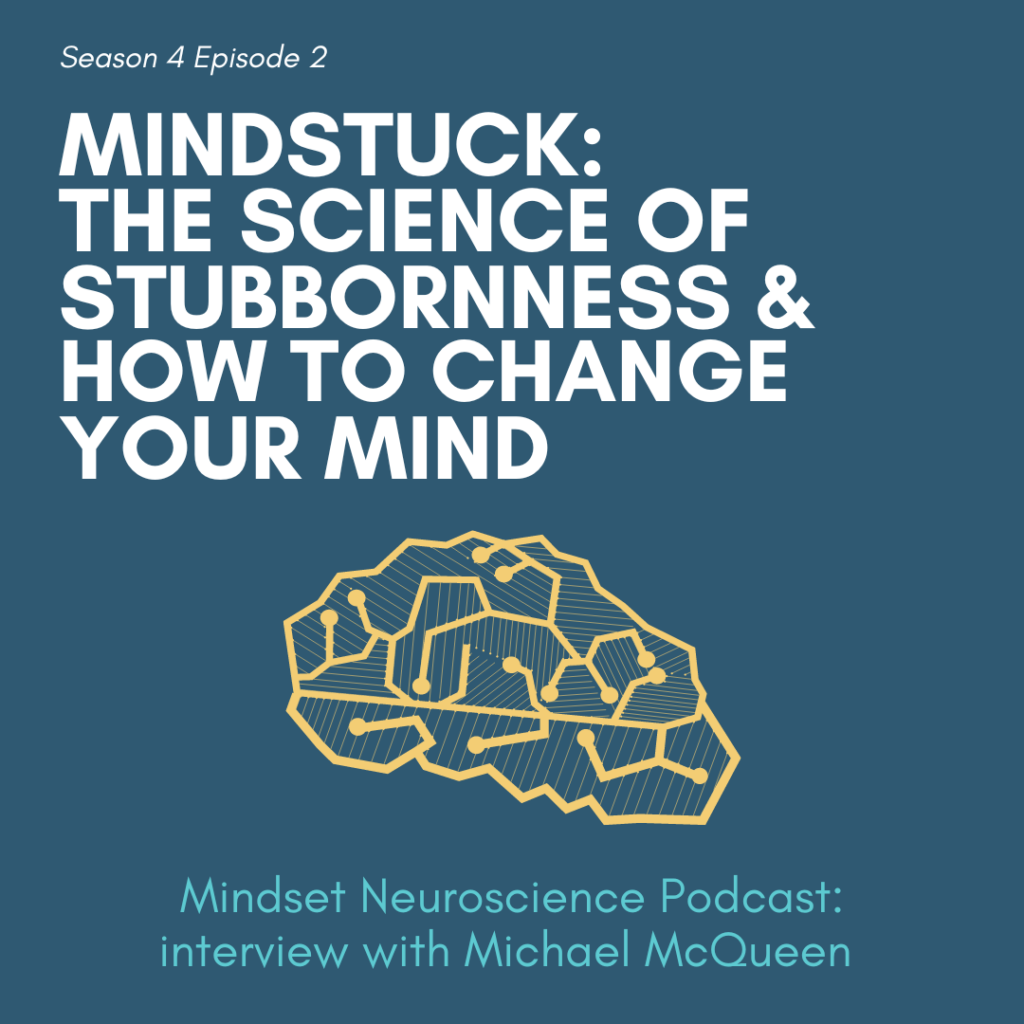
In a world that often values certainty and consistency, it can be hard to admit when we need to change our minds.
The concept of changing one's mind is often seen as a sign of weakness or indecisiveness.
But the fact of the matter is, because we are complex adaptive systems, flexibility is our greatest strength. It’s what allows us to adjust and take in live data that is occurring now, is constantly changing and emerging.
In my interview with Michael McQueen, we talk about his book, Mindstuck: Mastering the Art of Changing Minds,‘the ‘science of stubbornness’ and key strategies we can use for facilitating mindset shifts. We dive into the neuroscience of unconscious biases, polarization and prejudice.
We also discuss:
- the neuroscience of unconscious biases, polarization and stereotypes.
- specific types of words we use that can trigger fixed or growth mindsets,
- nervous system mechanisms that control muscle movements and keep us resistant to change and perpetuate self-fulfilling prophecies.
Michael also shares helpful ideas about what can make us all feel more empowered to change our minds and inspire others to challenge their own theories and opinions. Among these, he lists agency and safety as key mechanisms for increasing the chance of inspiring a mindset shift.
Agency and control create psychological safety
One key aspect of how to change your mind and help others to do the same, Michael suggests, is to maintain a sense of agency and control in the process. People are more likely to embrace change when they feel that they have a choice and are not being forced into it.
The more intelligent a being is, the more it knows of its own autonomy and degrees of freedom. When a person feels that they still have autonomy within a situation or interaction, they are more able and willing to trust.
This sense of agency also fosters psychological safety, which allows people to explore new ideas and perspectives without fear of judgment or retribution.
Values vs. Viewpoints
When we talk about changing minds, it's not about flip-flopping on every issue or abandoning our core values.
It's about being open to new information, different perspectives, and evolving as individuals. It's about being willing to explore complex and nuanced viewpoints, even if they challenge our existing beliefs.
Michael asserts that standing up for our VALUES allows us to feel aligned and still hold what is important to us on deeper levels. VIEWPOINTS, on the other hand, are things we can be more flexible about.
The brain-body system will always prefer to stick with what it knows.
It prefers predictability because this allows it to use what it already has (in terms of circuitry, flow of resources and architecture) to react.
This makes it hard for many of us to stay open to changing our minds.. about people, ourselves, and long-held beliefs.
When we become more curious and willing to allow for complexity, we loosen the grip of rigid thinking patterns that are a part of our brain’s energy-conserving mechanisms.
Mental Flexibility is a sign of strength
The ability to update our opinion based on new information is not a sign of weakness, but a reflection of maturity, complexity and confidence. It is also a gateway to personal evolution and deeper connections with others.
The more we all embrace this ability and honor those who are willing to be vulnerable enough to update and expand their mind, the more resilient we become as a society and within our relationships.
As we discuss in this interview, we have the opportunity in our hyper-connected world to model complexity by exploring new opinions and experiences that may be different than what we are used to.
Be honest about the echo chambers you are a part of.
As Michael states in this interview, an important question to reflect on is, “what have you changed your mind about recently?” This can be during a conversation with a loved one, a family member, or within other spaces we find ourselves in online and with others.
Mindset shifts are a continuous, powerful process that require self-reflection, vulnerability, and a willingness to challenge our existing beliefs. By being more explicit about the strength it takes to update and change our mind, the more we create space for others to feel brave enough to do the same.
References cited in this episode
Carol Dweck (essentialist, thinking, generic language and growth mindset)
George Bonanno (regulatory flexibility and feedback responsiveness)
Podcast chapters:
[00:01:34]: Importance of flexibility
[00:03:08]: Embracing complexity and mixed feelings [00:04:31]: Understanding incomplete opinions [00:05:58]: Embracing the process of changing minds [00:13:29]: The motivation behind writing the book [00:17:22]: Exploring cognitive processes in stubbornness [00:22:19]: The impact of language and social interactions [00:28:13]: The significance of curiosity and compassion [00:55:12]: Importance of regulatory flexibility [00:57:01]: Empowering change through agency [00:58:00]: Agency and psychological safety [00:59:42]: Influence of hunger on decision-making [01:00:49]: Significance for personal growth and education [01:01:18]: Customized neuroscience for coaches[01:09:46]: Standing out as a coach with science-based data
If you want a concise and inspiring neuroscience explanation you can use to help others (and yourself) adopt a growth mindset, Watch my latest video about the neuroscience of growth mindset...
The good news about a mindset being an electrochemical firing pattern is that you have the possibility of updating it.
If you feel like you are struggling or stuck in an area of life, you need new inputs to help update those algorithms.
Learn more about this in my YouTube video and a deeper discussion about the neuromechanics of mindset in my Talks@Google .
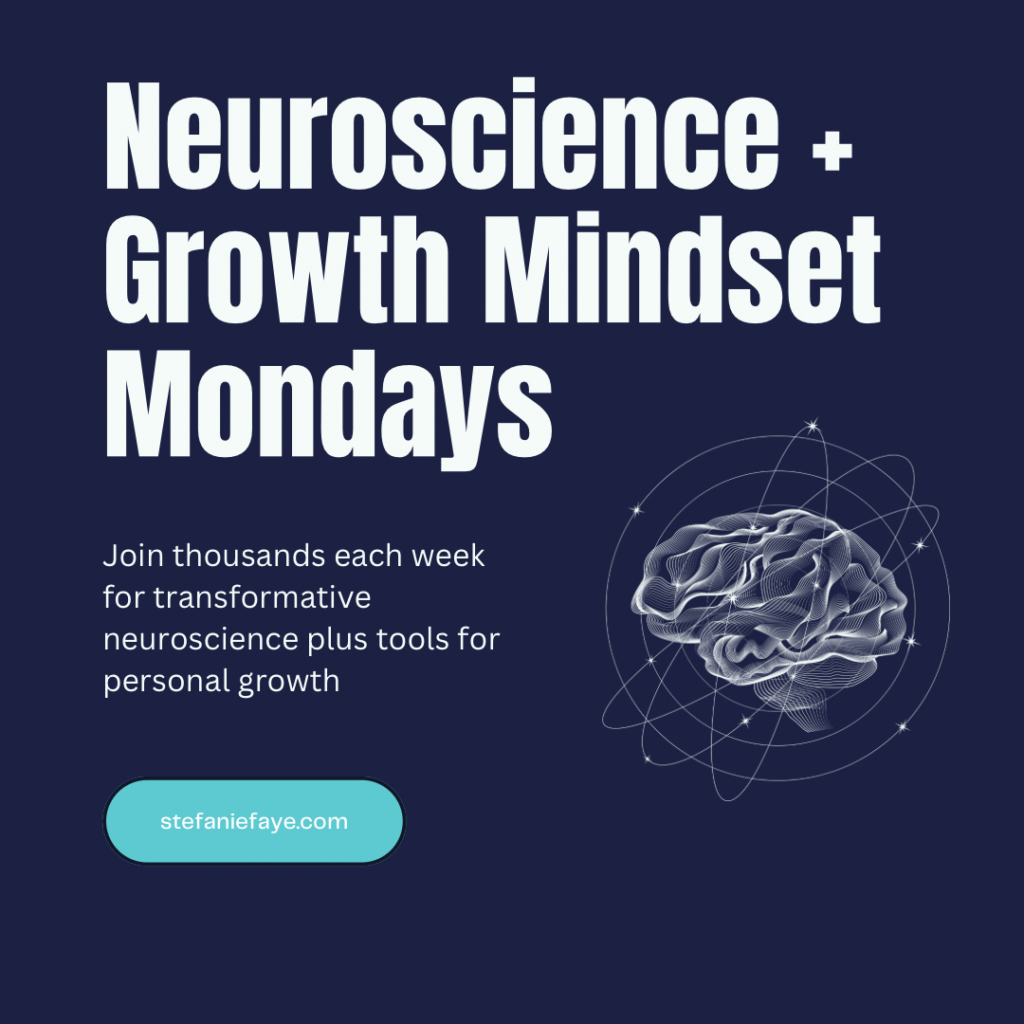
PS - This Monday, I will be starting Neuroscience + Growth Mindset Mondays. This will be a weekly article to help start your week with neuroscience plus mindset-shifting tools for personal growth and leadership.
In a few weeks, I will be sending you another subscriber-only gift related to increasing your ability to stand out, get noticed and spark mindset shifts through the power of neuroscience.
If you think someone would benefit from all of these free resources, send them to this link so they can get my three free mini books and other bonus gifts that are for subscribers only.
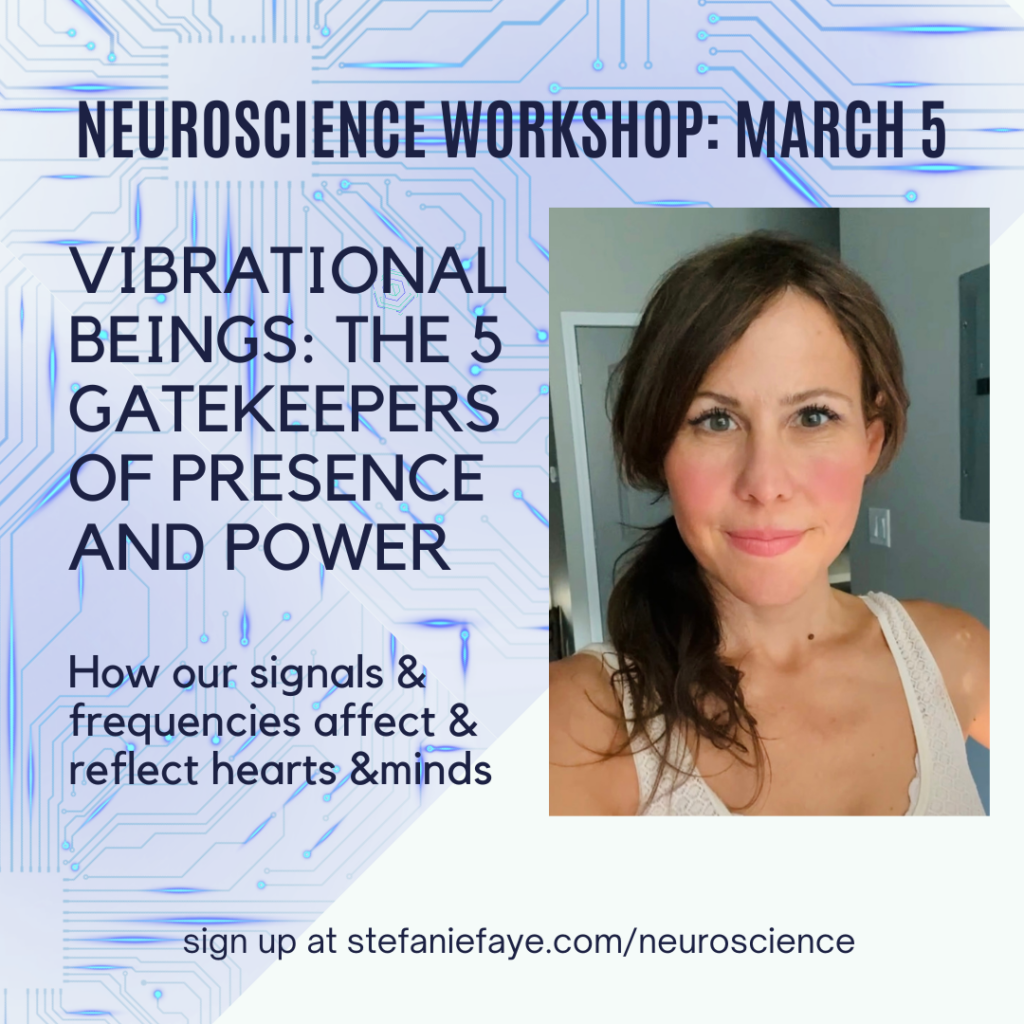
In this workshop, we'll look at The 5 Gatekeepers of Vibrations that enable us to embody, detect and project our highest sense of power, authenticity, authority and presence as a way to inspire and model wellbeing and thriving for others.
If you're unable to attend live, you'll get a recording, notes and handouts plus resources and research to explore as well.If you are interested in learning more about this and having a chance to ask me about specific examples in your own life, I highly recommend you join.
Tuesday March 5
7:30-8:45 PM Mountain Time
$55
Special thanks to Integrated Human Performance Coaching Team, Coach Kristin Horstman, AUSTAT and the team in Australia for bringing their engagement and insights to each of these sessions
Also a HUGE THANK YOU to Gina D’Andrea-Penna for creating incredible notes for people to refer to after the session
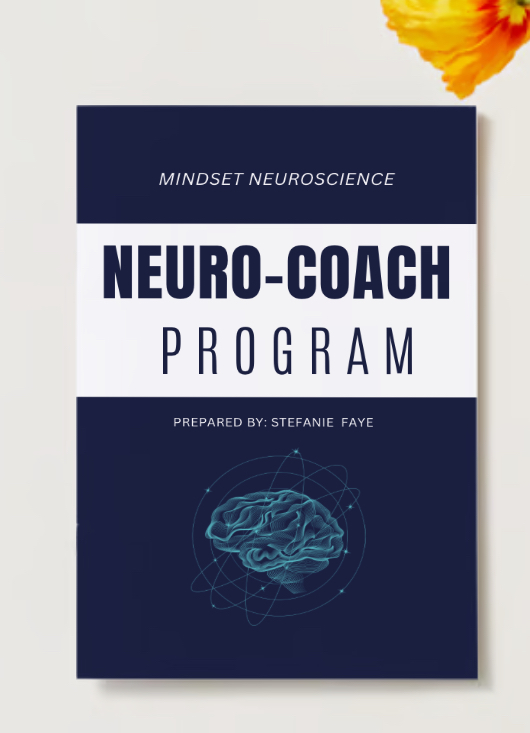
I am also opening up a few spots for my Neuro-Coach program. This is an exclusive opportunity to work 1-on-1 with me to help you become more ‘fluent’ in neuroscience so you can attract more clients and enhance your position as an authority.
Through this program, we will build out three key pillars through Client Nervous System Mapping, specialized science-based avatars, and other systems to help you stand out among your competitors and diversify your client base with the power of neuroscience.
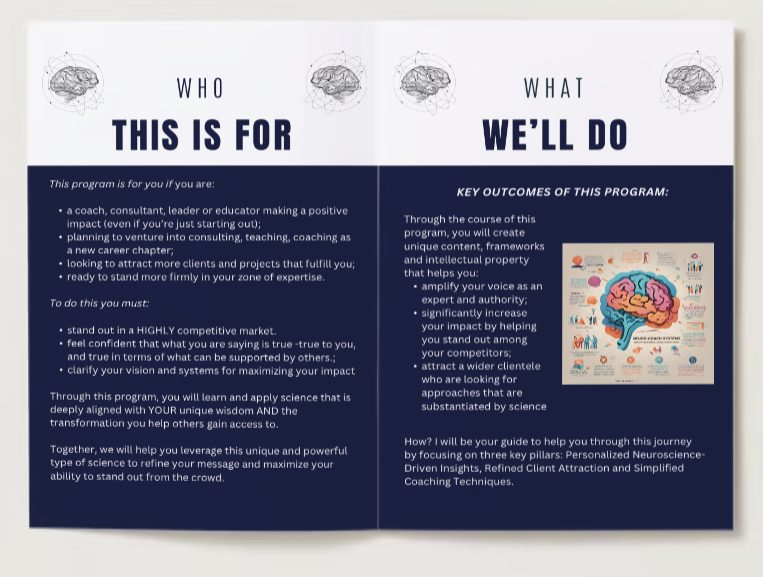
Participants of this program will also become a Neuro-Coach Alumni and be featured on my website and other channels, as well as have an exclusive opportunity to get personalized brain maps for themselves and clients to use as pre- and post-assessments and marketing material.
Full disclosure that there is a selection process, so take the time to read about it here and book a 15-minute call with me if interested (scheduling link is on the link listed above).
*please note that the suggestions and exercises offered in these videos and articles are not offered as a substitute for professional mental health care or medical care and are not intended to diagnose, treat or cure any mental health or medical conditions.
